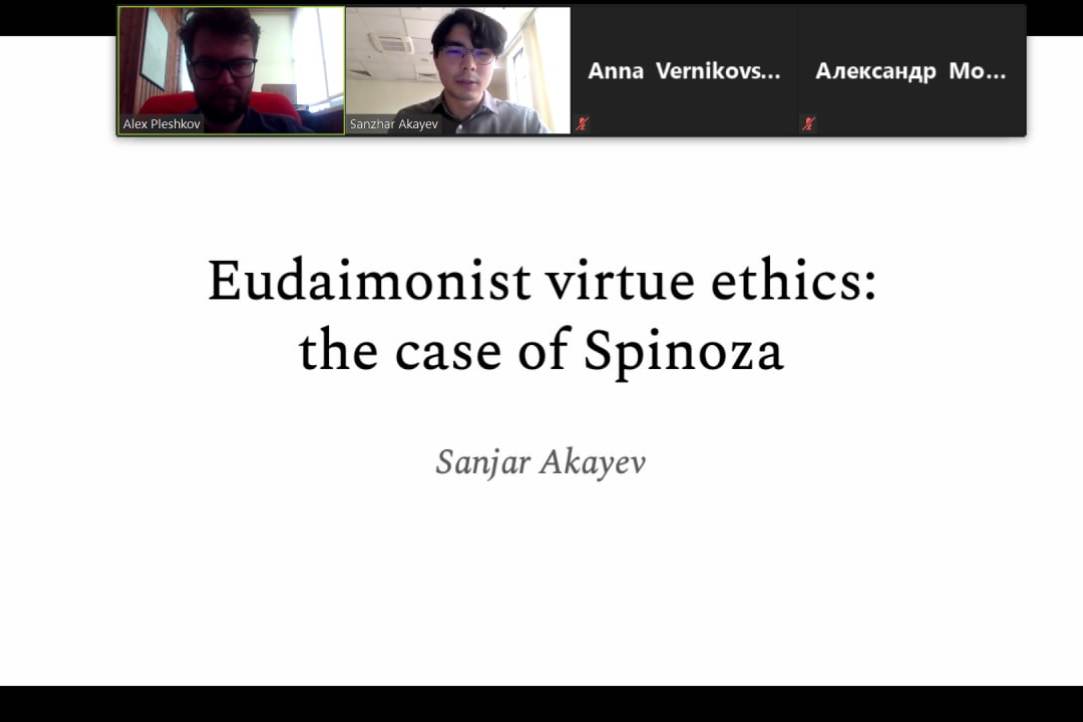Научный семинар "Eudaimonist virtue ethics: the case of Spinoza"
5 марта участники проектной группы провели научный семинар, посвященный рассмотрению моральной философии Баруха Спинозы с точки зрения эвдемонической этики добродетели.

Семинар открыл доклад Санжара Акаева "Eudaimonist virtue ethics: the case of Spinoza", в котором автор представил свою интерпретацию моральной философии Спинозы, поместив ее в традицию эвдемонической этики добродетели. За докладом последовала дискуссия, в ходе которой участники группы обсудили возможные проблемы этой интерпретации, связь Спинозы с античными и средневековыми моральными философиями и сложности перехода от метафизики к этике в его философском проекте.
Аннотация доклада
In recent decades, historians of moral philosophy more and more often turn to Spinoza, addressing the understudied ethical dimension of his philosophy. However, despite this growing interest, Spinoza is rarely placed within the canon of moral philosophy and thus his exact relation to various strands of ethical thought still remains to be fully elaborated. In this talk, I argue that Spinoza’s normative ethics can be considered as an important part of the tradition which is now called “eudaimonist virtue ethics”. Such a stance is justified, first and foremost, due to Spinoza’s clear commitment to the normative moral ideal of the so-called “free man” [homo liber], presented in parts IV and V of “Ethics”. Following Steven Nadler’s account, I posit that this ideal: i) is deeply rooted in Spinoza’s metaphysical, epistemological and metaethical commitments; ii) presents us with a clear notion of (attainable) good, virtuous and free life; iii) has a unique place in the history of eudaimonist virtue ethics — a place that cannot be reduced or equated to the influential Aristotelian, Platonist or Christian viewpoints and is thus valuable for contemporary normative ethics. In the course of my arguments, I argue against certain claims of inconsistency in Spinoza’s ethical project, showing that the ideal of “free man” can be unproblematically followed by moral agents that accept Spinoza’s understanding of the nature of our moral life as such.
